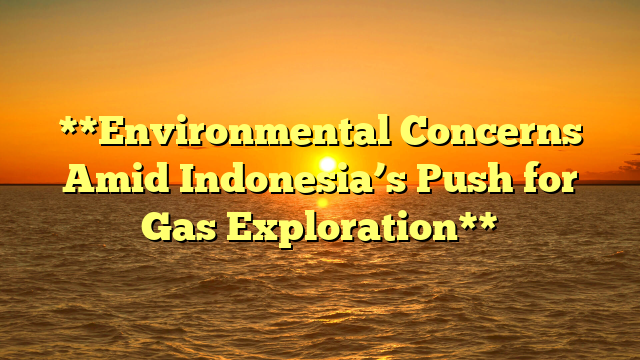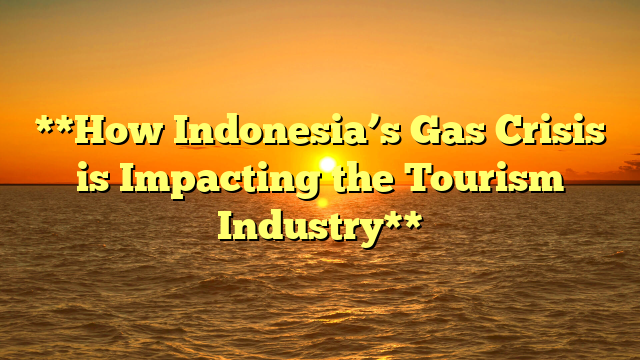
As Indonesia seeks to expand its natural gas exploration to meet growing energy demands and reduce dependence on coal, concerns over its environmental impact are becoming increasingly significant. While natural gas is often considered a cleaner fossil fuel compared to coal and oil, its extraction, transportation, and usage still pose environmental risks. Issues such as deforestation, habitat destruction, greenhouse gas emissions, and water pollution have raised questions about whether Indonesia’s aggressive push for gas exploration aligns with its sustainability goals. As the country navigates its energy transition, balancing economic growth with environmental protection will be crucial.
One of the main environmental concerns associated with gas exploration is deforestation and habitat destruction. Many of Indonesia’s untapped gas reserves are located in ecologically sensitive areas, such as Papua, Kalimantan, and Sumatra. Expanding gas fields often requires clearing large areas of forest, which threatens biodiversity and disrupts local ecosystems. Indonesia is home to some of the world’s most diverse wildlife, including endangered species such as orangutans and Sumatran tigers, whose habitats are increasingly at risk due to energy development projects. Without strict environmental regulations and sustainable land management practices, gas exploration could contribute to the country’s ongoing deforestation crisis.
Another major issue is methane emissions, a potent greenhouse gas released during natural gas extraction and transportation. Although natural gas burns cleaner than coal, leaks from gas wells, pipelines, and processing facilities can release significant amounts of methane into the atmosphere. Methane is known to have a far greater warming potential than carbon dioxide over a short period, exacerbating climate change. Indonesia, as a signatory to the Paris Agreement, has committed to reducing greenhouse gas emissions, but its expanding gas industry poses challenges in meeting these climate targets. Implementing stricter emission monitoring and investing in methane capture technology will be essential to minimize environmental damage.
Water pollution is also a growing concern in gas exploration activities. Hydraulic fracturing, or “fracking,” a technique used to extract gas from deep underground, has been linked to groundwater contamination in other countries. While Indonesia has not yet widely adopted fracking, conventional gas drilling still requires large amounts of water and chemicals, which can seep into local water supplies if not properly managed. This pollution threatens both human health and aquatic ecosystems, particularly in rural communities that rely on rivers and groundwater for drinking water and agriculture. The government must enforce strict environmental regulations to prevent water contamination and ensure that gas extraction does not come at the expense of local communities.
Moreover, Indonesia’s gas infrastructure, including pipelines and LNG terminals, presents additional risks such as oil spills, land degradation, and air pollution. Improper waste disposal, gas flaring, and accidents at drilling sites can lead to long-term environmental damage. As NS2121 – Situs Judi Online Terbaik expands its gas network, ensuring proper oversight, safety measures, and corporate accountability will be vital to preventing ecological disasters.
In conclusion, while Indonesia’s push for gas exploration is driven by economic and energy security concerns, the environmental risks associated with these activities cannot be ignored. Without proper safeguards, increased gas production could contribute to deforestation, greenhouse gas emissions, water pollution, and ecosystem destruction. To achieve a more sustainable energy future, Indonesia must implement stronger environmental policies, invest in cleaner technologies, and explore alternative renewable energy sources to reduce its long-term dependence on fossil fuels. Balancing development with environmental protection will be key to ensuring a sustainable and resilient energy sector for future generations.





